
 Flash News
Flash News
Korça/ 40-year-old man jumps from fifth floor balcony, in critical condition
Croatia restores compulsory military service
Illegal constructions in Theth, Manja demands disciplinary proceedings against prosecutor Elsa Gjeli
Details from the murder of Renis Dobra, the perpetrators came with 2 Range Rover cars from Rrëshen
The Supreme Court left him in prison, Meta addresses the 'Constitution'
German newspaper: Refugee camp in Gjadër, an Italian prison, massive restriction of freedom
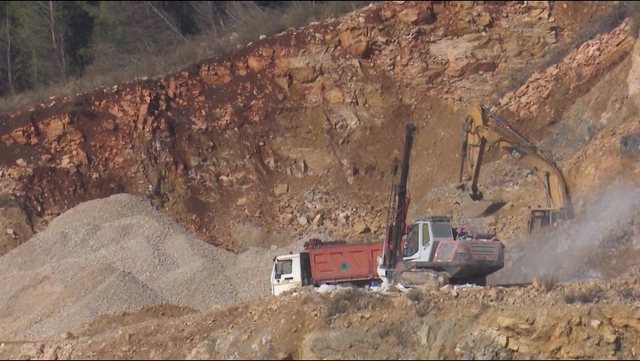
In Albania's Gjadër, people are critical of the migration camp planned by Rome. This is how the German newspaper "Frankfurter Rundschau" begins the article , referring to the Italy-Albania agreement on refugees.
The German newspaper refers to the stalling of the construction of the camps in Gjadër, in a former military area. The works, which should have been completed on May 20 and the camps had already been opened, have been stopped.
Refugees by boat that are taken in the Mediterranean before arriving in Italy will be sent to Albania, exactly to the camps that will be built. The camp is not only paid by the Italian state, but the Italian law is also applied here, the Albanian state has been chosen here. Something that Albanian constitutional experts consider illegal. However, the Albanian Constitutional Court approved the project.
In particular, the fact that migrants are not allowed to leave the camp is causing strong criticism.
There has never been such a massive restriction of freedom in democratic Europe. It is against human rights. For the village of Gjadër, the Italian project means that a kind of prison will be built here.
No one knows exactly who will come to Gjadër, but it probably won't be families, because special protection must be given especially to minors. Residents of the Catholic village, with its beautiful parish church and lovingly decorated cemetery, are concerned that the immigrants, who are treated like prisoners, could become mentally ill.
Albania: Jobs for the local population through refugee camps?
40-year-old Mariana Ndoci, who is serving some visitors in the village cafe, believes that the Italian project is a "social experiment". They want to find out how and if it works. "If you hold people captive for so long, they become aggressive. "What if some people try to break out of the camp?" she said. Mrs. Ndoci and others in the village criticize the fact that they were not even asked if they agreed with the Italian camp in Gjadër. You are simply presented with a fait accompli.
Other visitors to the cafe agree. Hairdresser Armando Hamolli says that the Albanian government is doing this only for personal interests. However, it may happen that at least jobs will be created for the local population. After all, the camp needs a medical station and people to maintain the building, for example.
According to the agreement with Italy, "the total number of immigrants staying in the Albanian territory at the same time in accordance with this protocol cannot exceed 3,000 people". But this means that the Italian government's calculation is unlikely to work: that the threat to come to Albania instead of Italy may be such a deterrent that fewer migrants dare to cross the Mediterranean from Africa.
Clarifying the migrants' need for protection could take months, and in the meantime tens of thousands will have arrived again in Italy. Lawyers and international organizations that care for asylum seekers, as well as EU agencies, should have access to the camp.
However, the protocol between Italy and Albania, which entered into force in March, provides for numerous exemptions for the Italian authorities: no construction permit is required to build the buildings in the camp, and the buildings are exempt from taxes and customs duties. Italians who are employed in the camp also do not have to pay income tax or social security contributions in Albania. There are no restrictions or controls on how many euros you can bring into Albania. Italian staff also do not need visas. Anyone staying in Albania for more than the allowed 90 days will receive "a free identity document with a simple request," according to the protocol.
This applies for the next five years, if no party objects, it will be "quietly extended for another five years". The Italian authorities have committed to transfer 16.5 million euros as a type of advance to a special account in the Albanian treasury. In the port of Shengjin, not far from Gjader, a complex is being intensively built in which the immigrants will undergo an initial check before coming to the current camp. The camp itself is expected to be completed by October.
Latest news


Malltezi: SPAK admits, we are in a process that began with Balla's false report
2025-07-10 22:34:16

Si të çliroheni nga bllokimet emocionale me anë të ushtrimeve
2025-07-10 21:57:24

Lala: Veliaj wanted to return as mayor
2025-07-10 21:40:46

VIDEO/ Brawl in Bolivian parliament, deputies physically clash
2025-07-10 21:20:30


Albania experienced one of the longest heat waves of the last decade
2025-07-10 21:01:09

The Government approves new procedures for declaring residence in e-Albania
2025-07-10 20:39:32

Koka: Northerners will not forget Edi Rama's racist operation in Theth
2025-07-10 20:18:24
The 3 zodiac signs that will be most affected by the 'Full Moon' of July 10
2025-07-10 20:04:49
New director of the National Center of Cinematography appointed
2025-07-10 19:51:12
Korça/ 40-year-old man jumps from fifth floor balcony, in critical condition
2025-07-10 19:40:19
'Tired Woman'/ The Syndrome That Affects Thousands of Women Every Day
2025-07-10 19:34:02
Jane Birkin's original Hermès bag sells for $10 million
2025-07-10 19:26:22

Britain-Ukraine agreement signed for 5,000 Thales missiles
2025-07-10 19:00:25
Fire in Zvërnec, flames endanger two hotels
2025-07-10 18:57:19
Croatia restores compulsory military service
2025-07-10 18:39:01
Spahia: The great truth of the strong accusation of the residents of Theth
2025-07-10 18:35:07


The Supreme Court left him in prison, Meta addresses the 'Constitution'
2025-07-10 17:57:21
New punishment with 'new' regulations
2025-07-10 17:54:46
EU translator fired over fears for Zelenskyy's safety
2025-07-10 17:45:37
'You are a policeman, but not God, take my soul', protest for Agon Zejnullahu
2025-07-10 17:41:21


Video/ Rama repeats the scenario, kneels before Meloni again
2025-07-10 16:56:31
He set fire to a plot of olive trees, 50-year-old man arrested in Shijak
2025-07-10 16:46:19

Rubio: US and Russia have exchanged new ideas for Ukraine peace talks
2025-07-10 16:36:20
Death of 27-year-old, Lipjan Police Commander Resigns
2025-07-10 16:21:28
Video/ An apartment burns in Tirana near the New Bazaar
2025-07-10 16:09:36


Jensila lights up the internet with her birthday greetings to Ledri
2025-07-10 15:42:08
They're full of pesticides! List of 12 products we need to be careful of
2025-07-10 15:31:04

Worker falls from scaffolding in Shëngjin, urgently sent to Trauma
2025-07-10 15:11:03
Malltezi: Within one day they seized my accounts, properties and shares
2025-07-10 15:01:23
EU: Israel has agreed to more aid to Gaza
2025-07-10 14:55:19


Murder of Reni Dobra, 23-year-old's vehicle pulled from the water
2025-07-10 14:29:23
Trump's tariffs on Brazil raise coffee prices
2025-07-10 14:16:07
Ursula von der Leyen survives no-confidence vote
2025-07-10 14:04:27


Fire in Lezha, flames near electrical substation
2025-07-10 13:32:24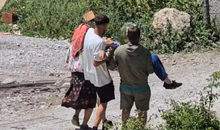
Residents clash with police in Theth, a woman faints
2025-07-10 13:24:38
"Rama and Xanun"
2025-07-10 13:15:46

Zodiac signs most likely to get divorced in July 2025
2025-07-10 12:45:51
A scapegoat for an illegitimate Republic
2025-07-10 12:35:02
"He has devastated his own nation"/ Berisha: Rama imprisons his opponents!
2025-07-10 12:26:54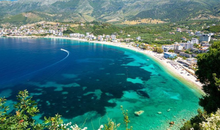

Albanian man injured with knife in Italy
2025-07-10 12:08:55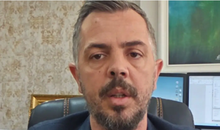





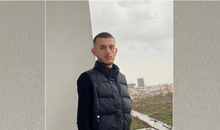
23-year-old in Mat drowned with rope, 4 suspects are being held
2025-07-10 10:58:53
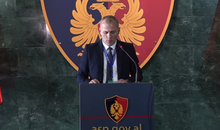
After the dismissals, the new director of the Shkodra Police is appointed
2025-07-10 10:30:10
BIRN: Rama's action for public spaces, a repeated spectacle
2025-07-10 10:29:11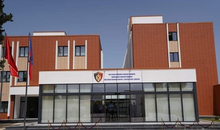
Action in Theth, Shkodra Police leaders dismissed
2025-07-10 10:16:28
Fatal accident on the Tirana-Durres highway
2025-07-10 10:01:58
The incinerator does not exist, but the government continues to increase funds
2025-07-10 09:51:45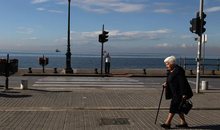
Albania is aging at a rapid pace! 30% of the population is over 60 years old
2025-07-10 09:46:23
End of an era, Modric says 'goodbye' to Real Madrid
2025-07-10 09:36:09
Mount Dukat has been on fire for 6 days, residents request air intervention
2025-07-10 09:27:24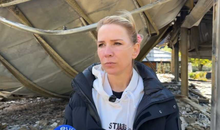

"Poverty on the rise"/ DW: Many people in Germany are not getting paid
2025-07-10 09:08:06
Horoscope, what do the stars have in store for you today?
2025-07-10 08:51:59




The scorching heat returns, the thermometer climbs to 40°C
2025-07-10 07:58:52
Morning Post/ In 2 lines: What mattered yesterday in Albania
2025-07-10 07:46:35
Tourist operator in Theth: They are demolishing our houses without warning
2025-07-09 22:54:57

Trump and Israeli commander warn: Gaza ceasefire could be near
2025-07-09 22:13:21
Fire in Elbasan Landfill, pedagogue: It is a cancer and environmental crime
2025-07-09 21:54:47


Dangerous summer, number of snake bites increases
2025-07-09 21:22:13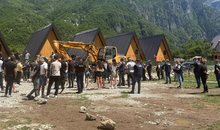
Berisha appeals again: Stop state terror against the residents of Theth!
2025-07-09 21:15:36
'Kissing disease' virus linked to several forms of cancer
2025-07-09 21:04:44
Malltezi confesses after release: Justice has become a political weapon
2025-07-09 20:51:48
Vokshi: Albania's EU integration has stalled due to lack of free elections
2025-07-09 20:37:21
